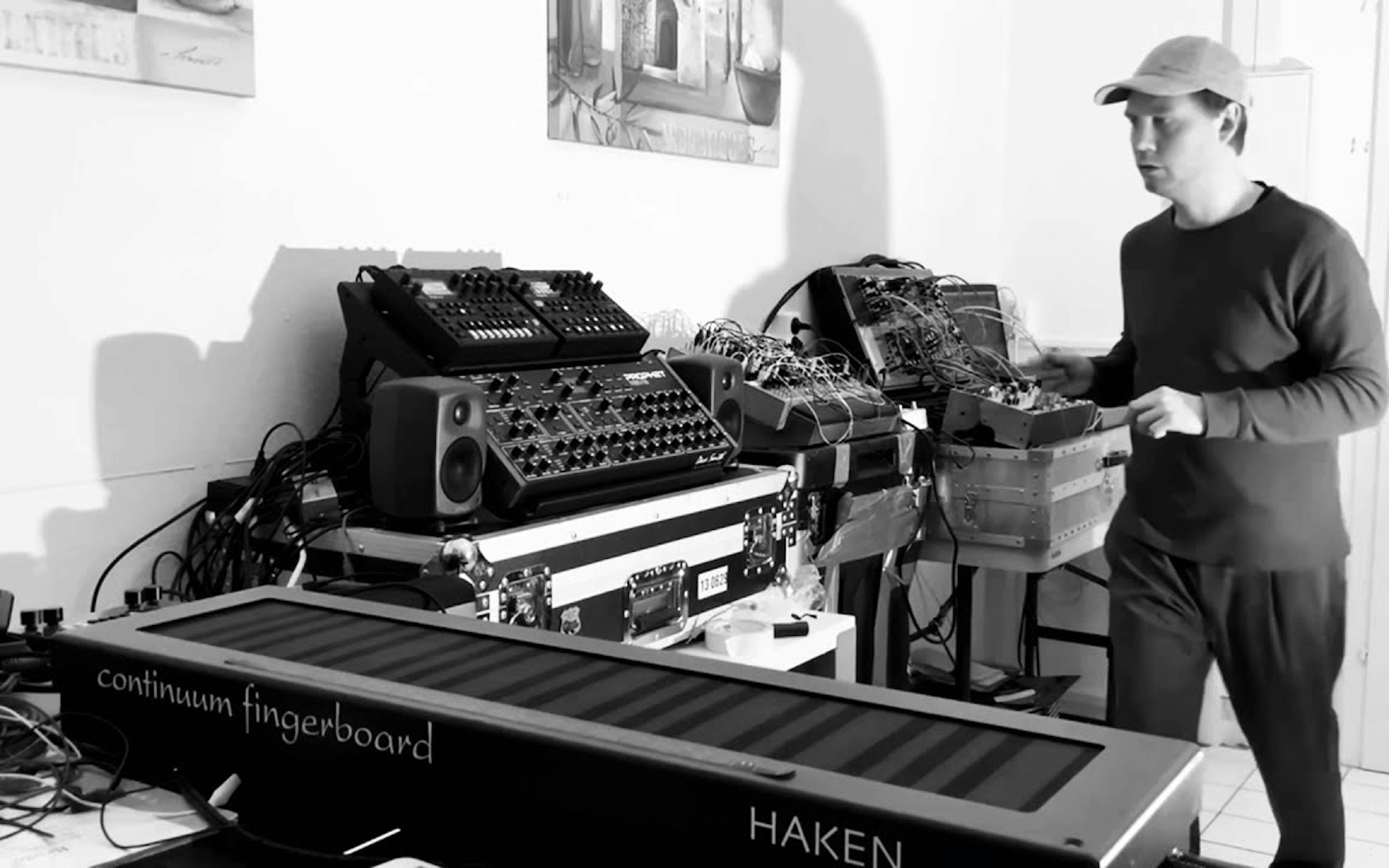
Making music in time: looking at VIBKO’s Masters project
Posted on 2021-04-21T22:00:00+0000 in AlumniStudent work
Creative Production in Music M.A. alumnus Ole-Jacob Sand, aka VIBKO, focused on the creative potential of live performance in his final project, titled ‘Making Music in Time,’ which he completed in January. Read on for a deep dive into his practice-based research.
How can real-time performance be used to form a basis for producing electronic dance music? As innovation in hardware and software exponentially expands the possibilities of performance, it’s a question that many the electronic music aficionado could spend their career pouring over. Creative Production MA alumnus Ole-Jacob Sand, aka VIBKO, dedicated a full year to deep dive into the topic, a practical and theoretical exploration which resulted in a fascinating final paper and a masterful collection of accompanying musical pieces.
As an electronic musician, Ole-Jacob specialises in playing and improvising on hardware instruments. His recordings mostly stem from sessions of improvisation and live looping. His Masters project was inspired by this long-time interest in electronic live sets, whereby, for example, drum machines, synthesizers and samplers are used as instruments in order to create a dynamic musical piece on the fly. But, for Ole-Jacob, the spontaneity didn’t end at the booth!
The project itself also evolved on the fly, thanks to the hyper-flexible nature of our Masters programme. The course, which can be studied for a year or two years part-time, encourages students to celebrate, explore, develop, innovate and magnify their capabilities, from whatever angle they personally approach the music industry. Over four modules, Ole-Jacob followed his intuition to make a wide range of investigations around the broad topic of live performance.
A huge congratulations to him on his stellar piece of practice-based artistic research, which raises questions on performance techniques, workflow and the results obtained from a performance-based method. Read on to find out more.
Above: A studio performance from Ole-Jacob's final project portfolio
Spontaneous Evolution
Ole-Jacob began by focusing on the live-performance process itself, considering the influence of such factors as decision making and technique, and created an initial collection of original works and performances. In the second module, he zoomed out to examine the wider context, discussing what it means to play music, particularly in the context of EDM. As a result of this enquiry, the project evolved to focus mainly on the performance aspect. By imposing creative limitations in the third module, Ole-Jacob dived into the potential of experimentation, creating and documenting five etudes.
He writes: “This led to an expanded musical vocabulary, new performance techniques, insight regarding the dynamic between control and risk in performance, a more developed musical style, as well as intuitive and tactile knowledge... Furthermore, it developed a better understanding regarding the use of musical parameters to create narrative meaning.”
Finally, Ole-Jacob refined his investigation, discussing his creative process behind two further performances: at the About Blank nightclub and in the studio. In fact, his detailed breakdown and analysis of all of his performances comprised the majority of his paper. What struck us was how instrumental – pun intended – taking the time to reflect on setups, achievements, issues and solutions can be to the progression and success of an artist.
Weighing Risks
What constitutes an improvised performance? And, moreover, what qualifies as an improvisation or a performance? This was one of the most important considerations of Ole-Jacob’s project.
He refers to his own live performances which, although incorporating prepared material, are never precomposed – an approach he compares to conventional jazz music. He asks to what extent can a live set be called a performance if the pre-preparation of elements – for example launching clips in Ableton Live – rules out any risk. He argues that only “controlled chaos” – an interplay of experimentation, chance and intuition – leads to innovation.
“It has been my discovery through working on this project,” he writes, “that some of the most interesting musical moments occur when I get myself ‘into trouble’; when situations occur that have to be solved in order to not end up with terrible sounding musical results. In other words, when there is risk involved and things get out of control, meaning I have to work to not lose control completely.”
Ole-Jacob cited several improvisational elements that drive his live performance: real time playing/programming, tone colour, dynamic shape, effects, texture and dynamics.
The Grand Finale
The whole purpose of practice-based research is to embark on an intensive odyssey of creative discovery. The bonus: getting a prestigious qualification at the finale! For Ole-Jacob, that process resulted in him gaining a great deal of technical skill and insight, a better understanding of his aesthetic choices, and an in-depth reflection on the broader topic of performance and improvisation – all of which are sure to propel him in his artistic career.
“Commiting to a project over a long time,” he concludes, “gave me consistency in my artistic process and allowed me to dive deep into the topic.” We can’t wait to see where his intuition leads him next.
Want to go deeper into the topic? Contact us to request a copy of Ole-Jacob Sand’s full MA paper.